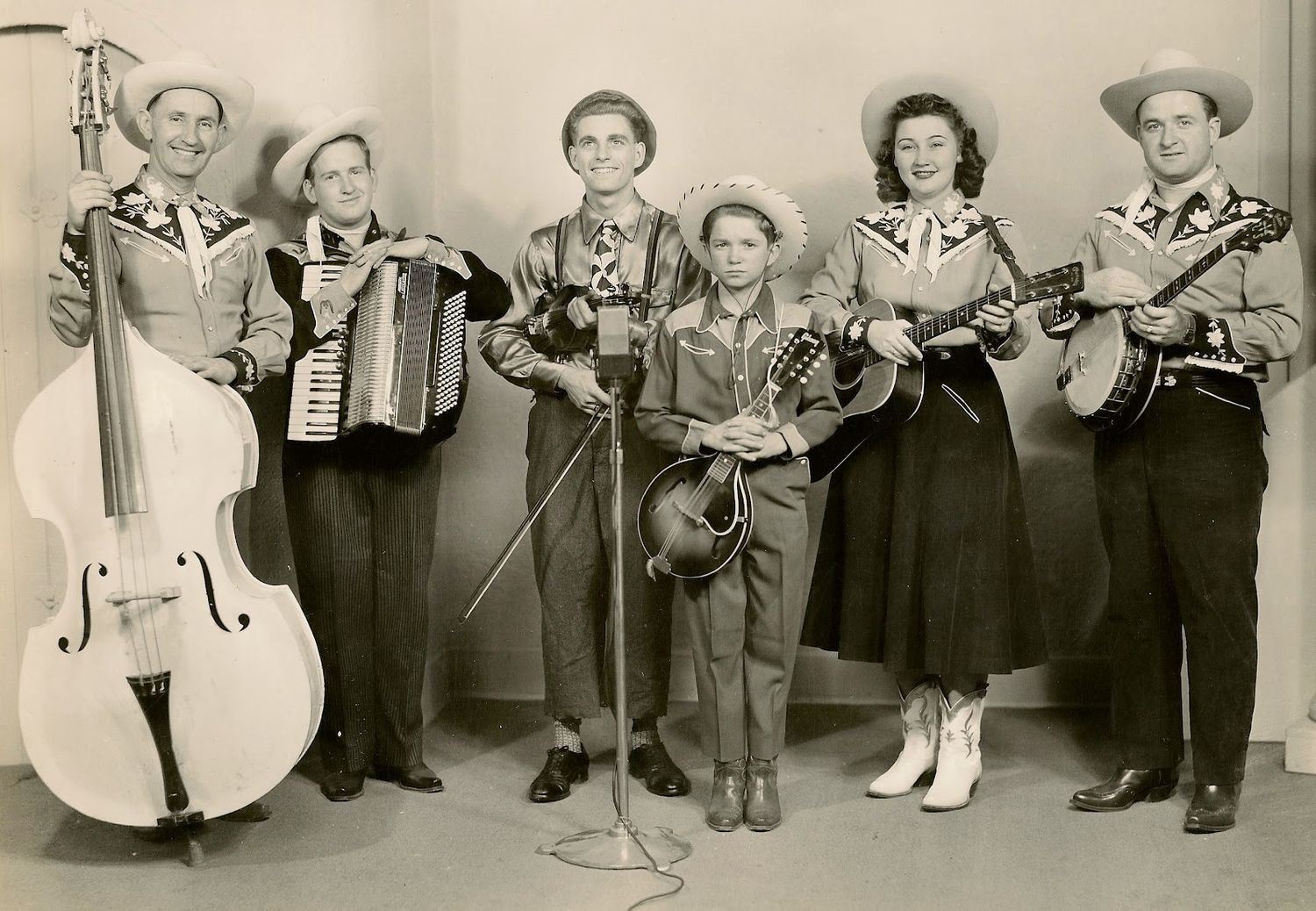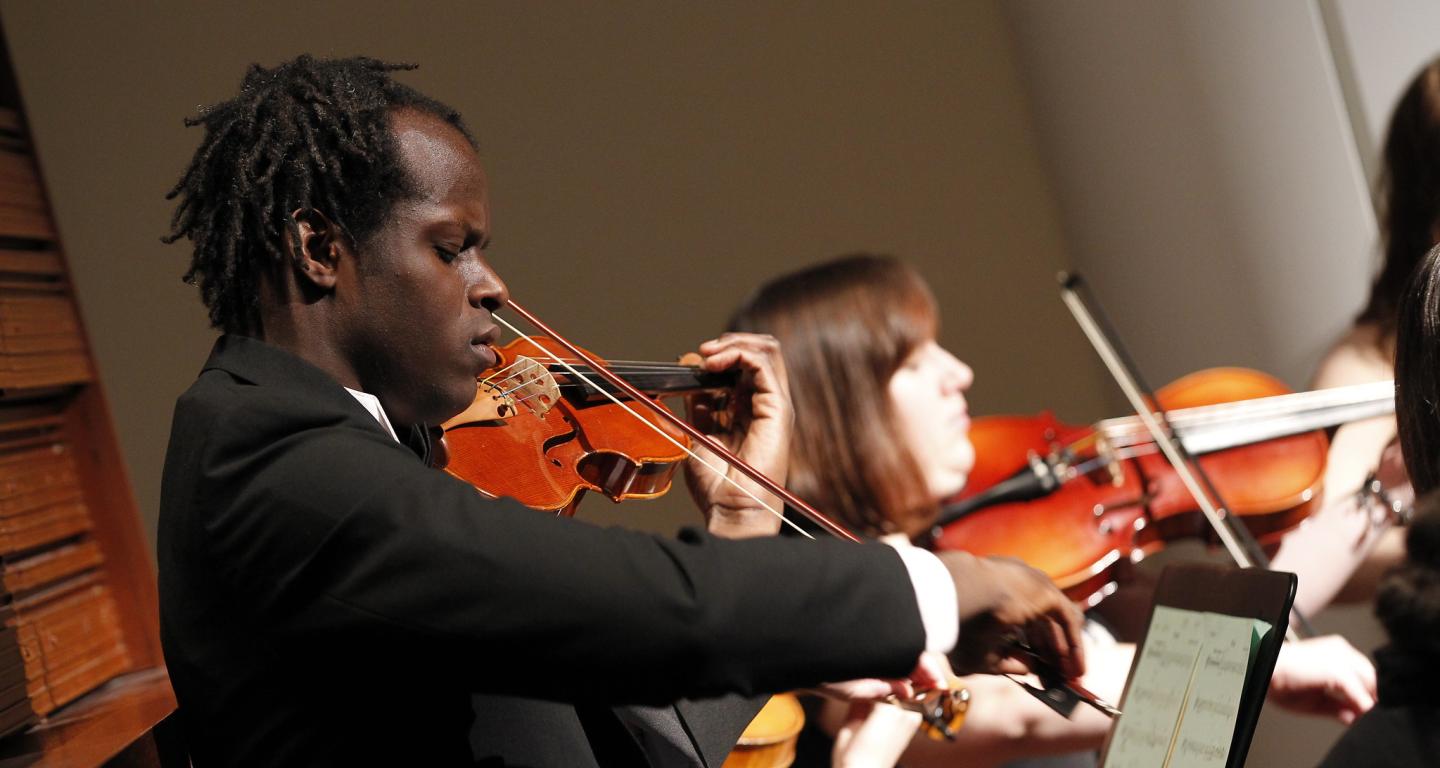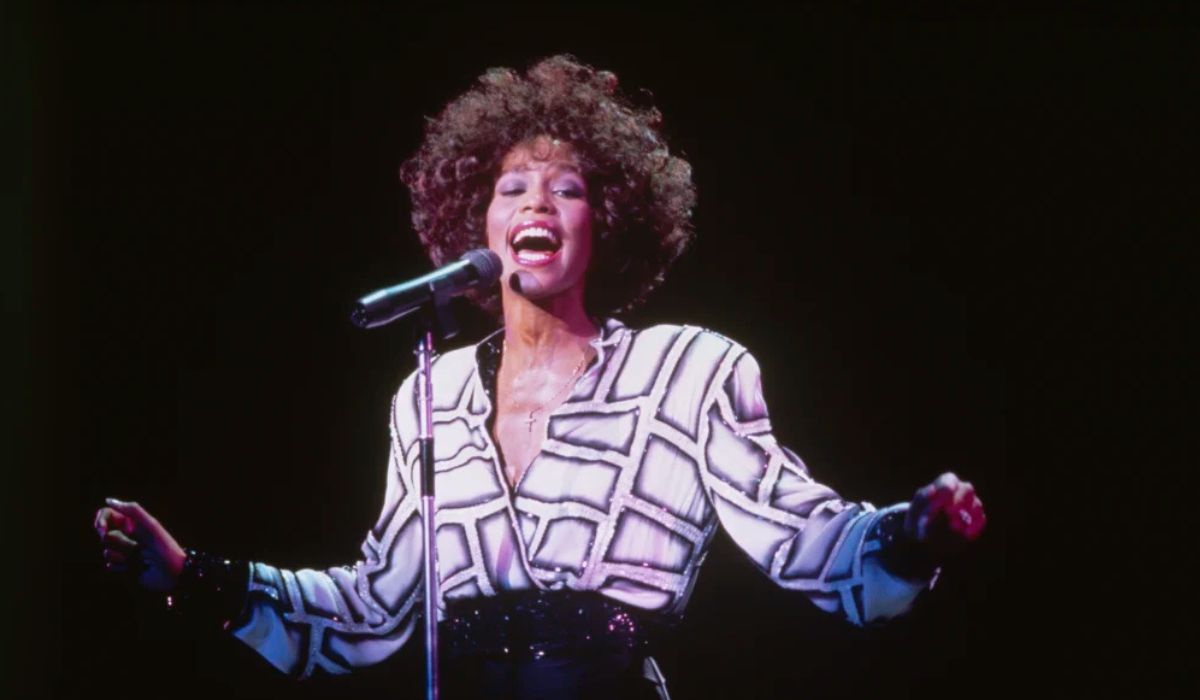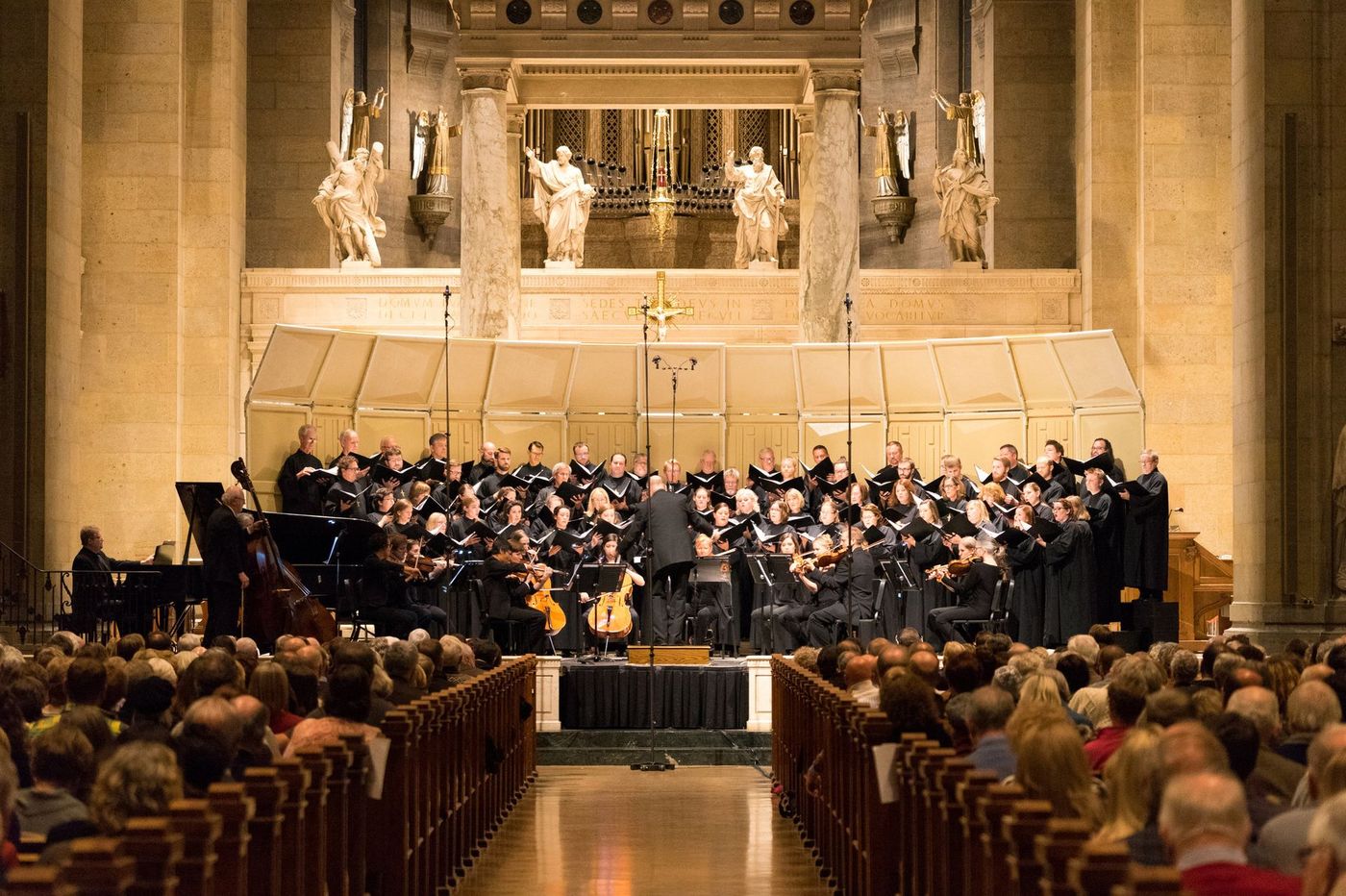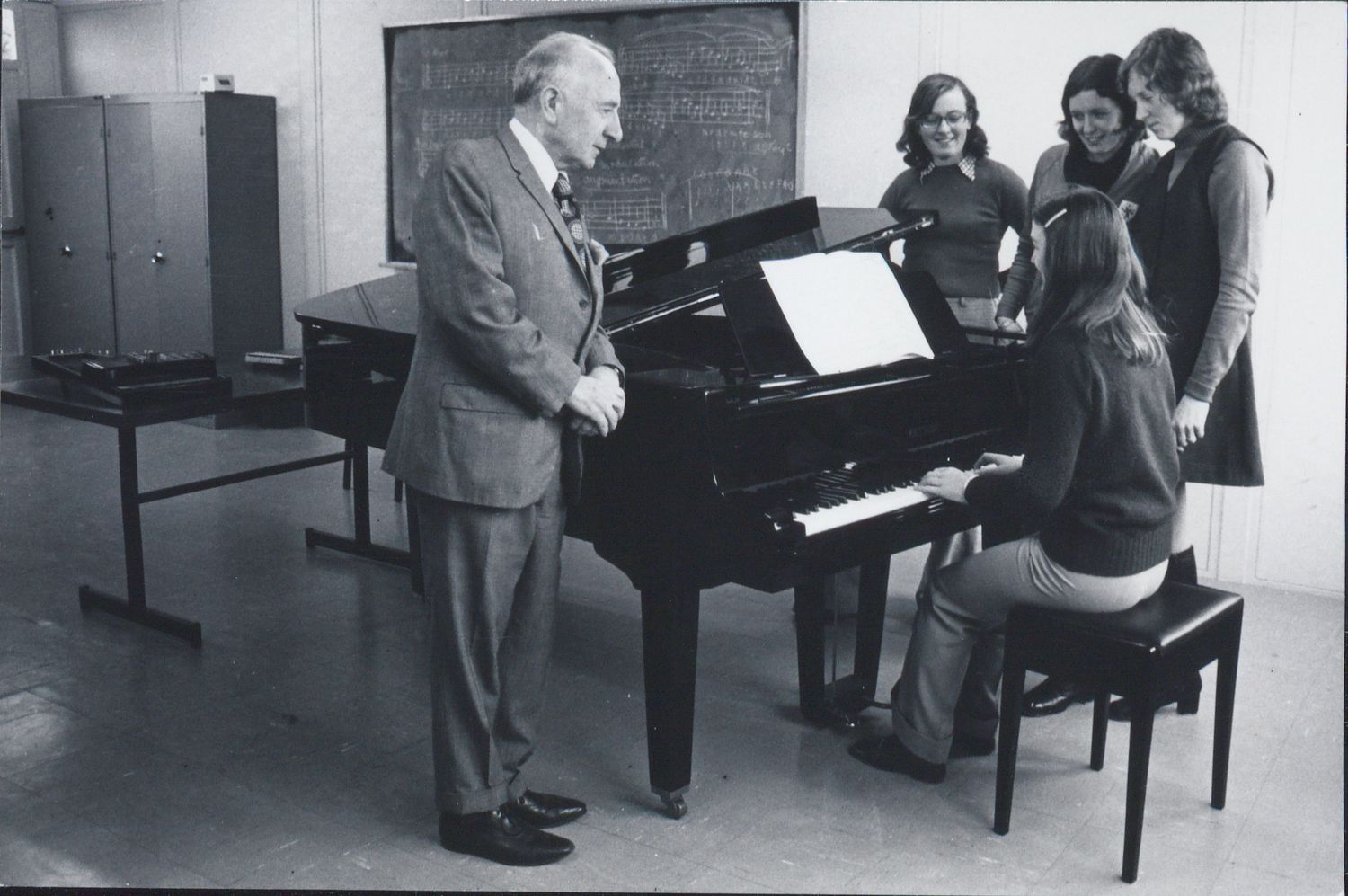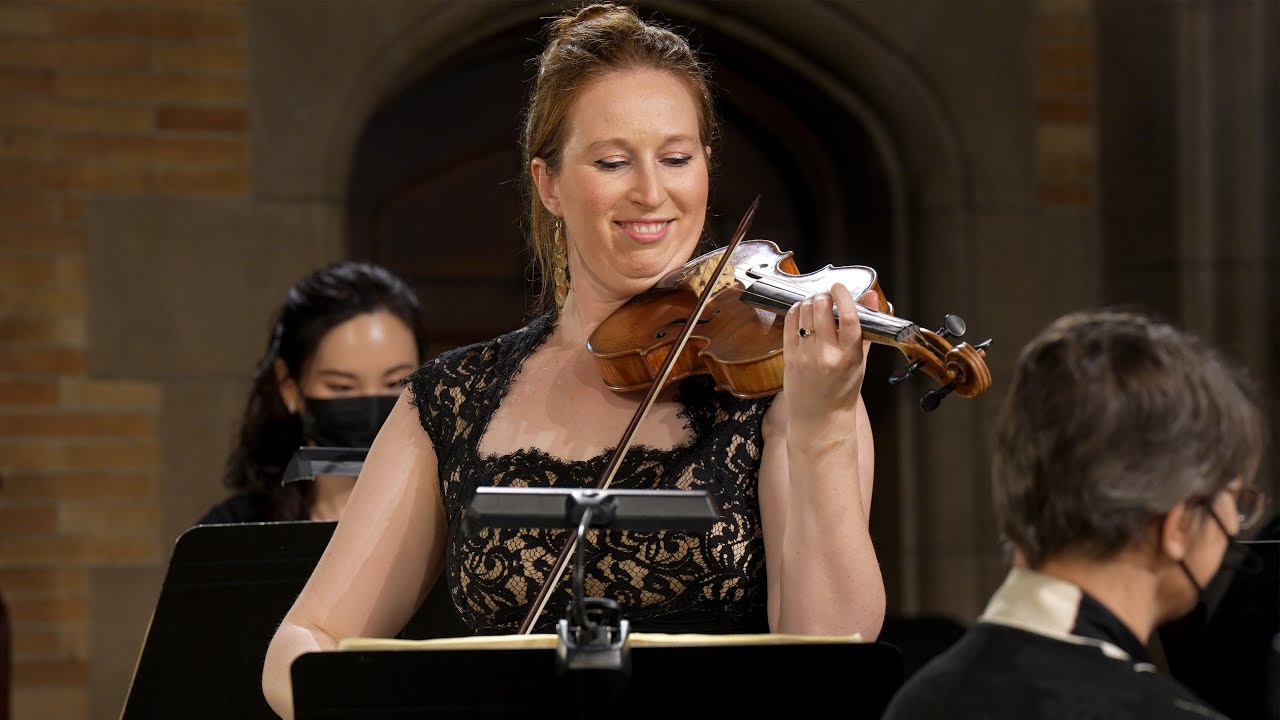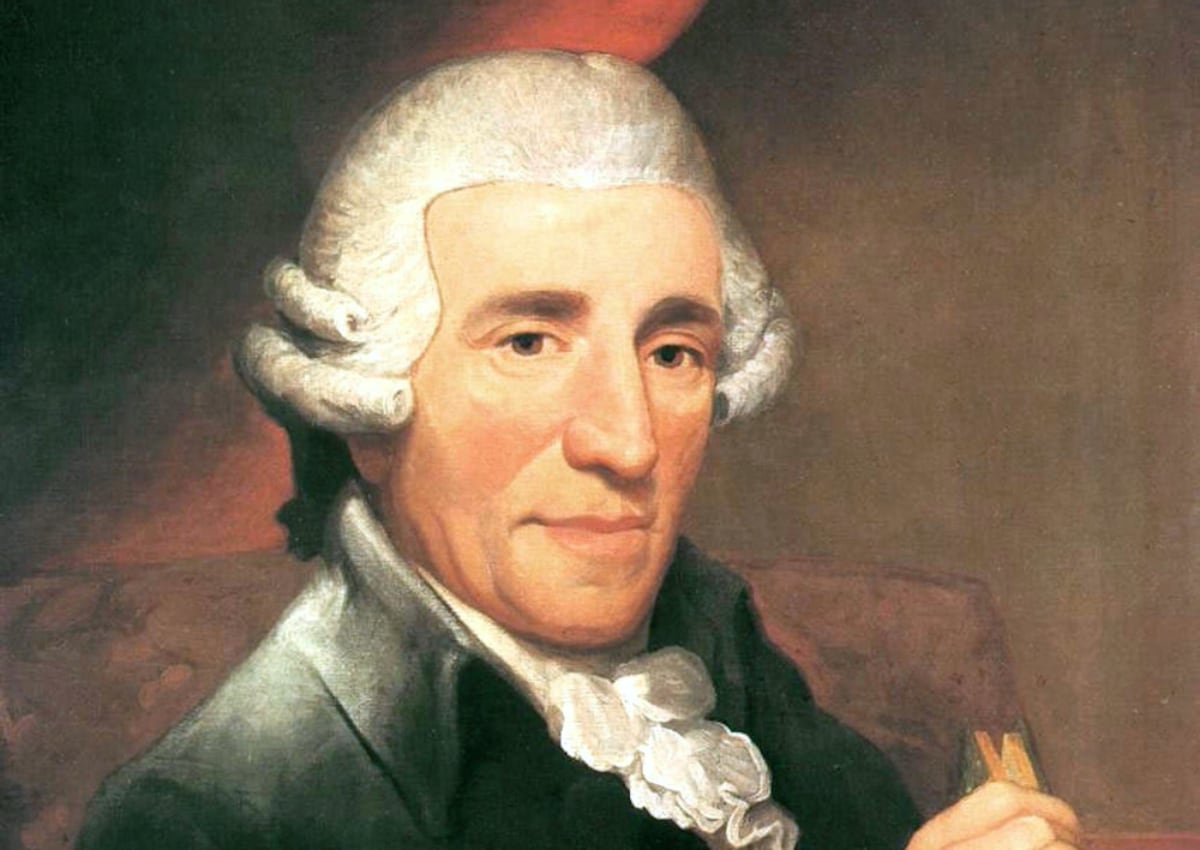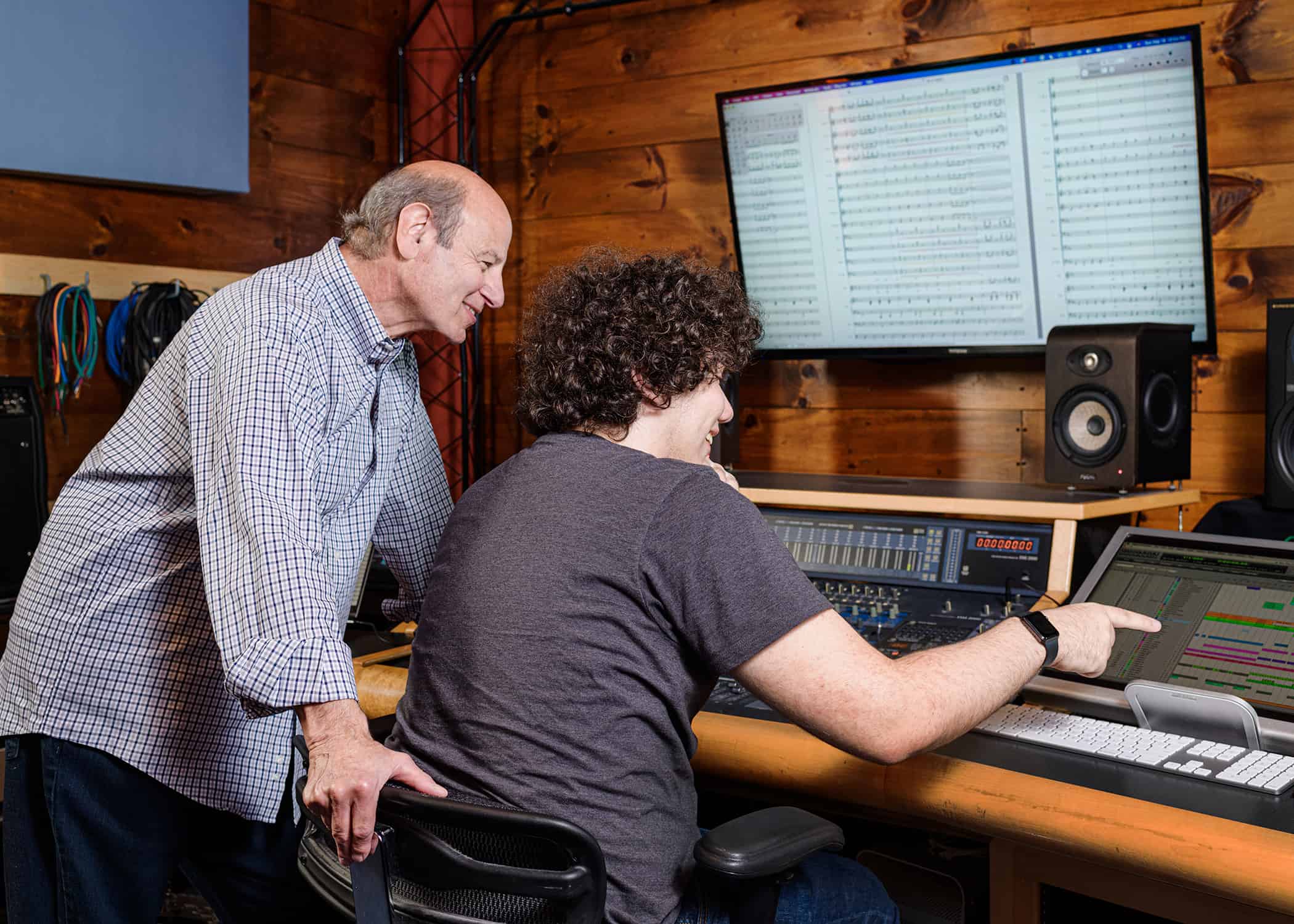Home>Events & Info>Music History>Who Affected Music History
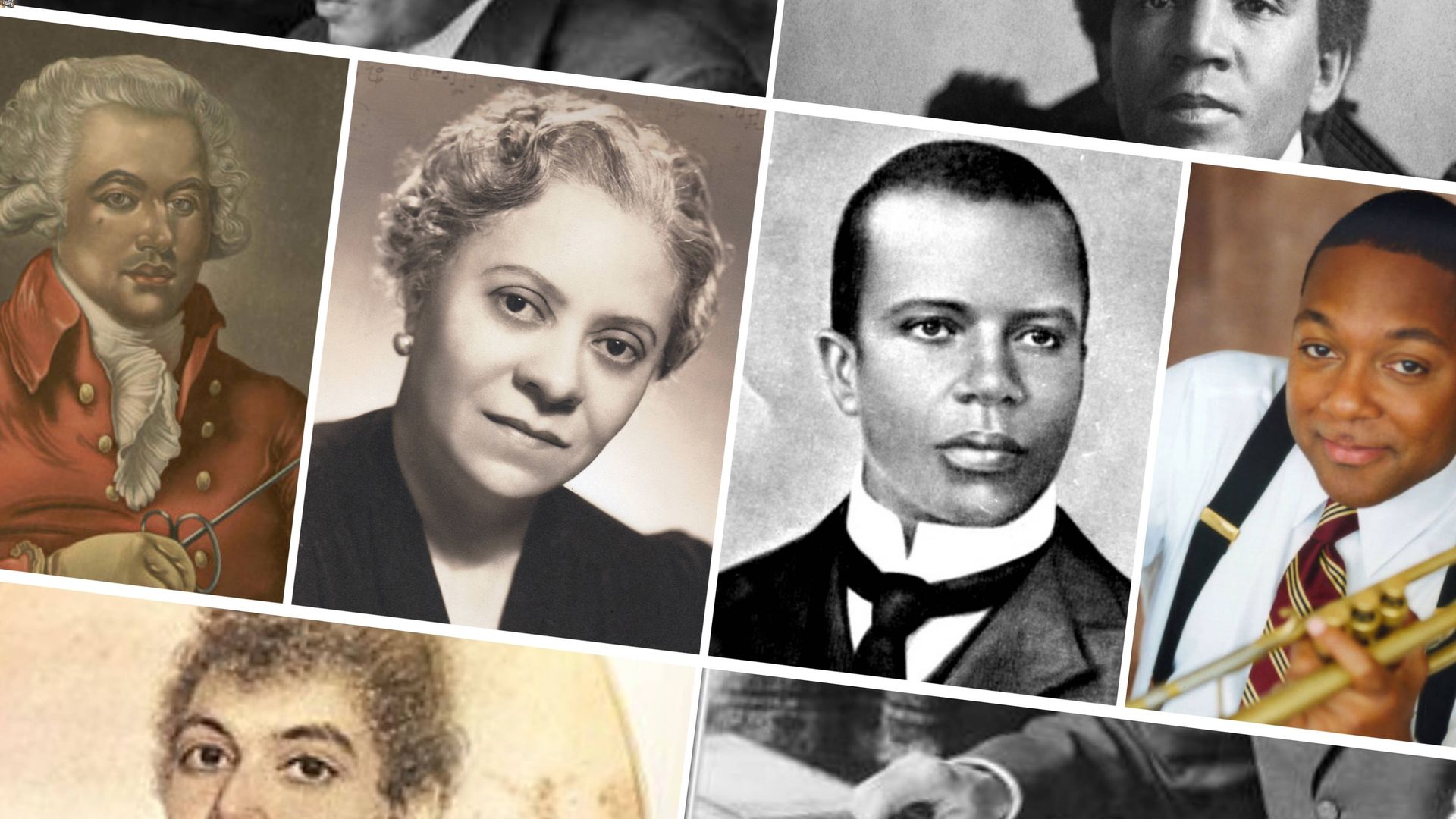

Music History
Who Affected Music History
Modified: January 29, 2024
Discover the influential figures who shaped music history and left an indelible mark on the industry. Explore the evolution of music through the eyes of these game-changers.
(Many of the links in this article redirect to a specific reviewed product. Your purchase of these products through affiliate links helps to generate commission for AudioLover.com, at no extra cost. Learn more)
Table of Contents
- Introduction
- Early Influences on Music History
- Classical Composers and Their Impact
- Jazz and Its Revolutionary Figures
- Rock ‘n’ Roll Icons and Their Cultural Influence
- Pioneers of Electronic and Experimental Music
- The Role of Folk and Protest Songs in Shaping History
- Hip Hop and its Social Impact
- Pop Icons and Their Global Influence
- Conclusion
Introduction
Music has always played a profound role in human history, capturing and reflecting the emotions, beliefs, and experiences of different cultures and eras. From the tribal drums of ancient civilizations to the complex symphonies of the classical era, and beyond, music has evolved and shaped the world we live in.
This article explores the remarkable individuals who have left a lasting impact on music history. These influential figures have not only revolutionized musical genres and techniques but have also challenged societal norms and sparked change through their art.
Throughout the centuries, these musicians and composers have pushed the boundaries of creativity, leaving an indelible mark on the cultural fabric of their time and beyond. From the pioneers of classical music to the trailblazers of jazz, rock ‘n’ roll, electronic music, and hip hop, their contributions continue to resonate with audiences worldwide.
Join us on a journey through time as we delve into the lives and legacies of these influential figures, exploring the ways in which they have changed music history forever.
Early Influences on Music History
The roots of music history can be traced back to ancient civilizations where music served a vital role in rituals, ceremonies, and storytelling. From the mesmerizing chants of ancient Mesopotamia to the haunting melodies of ancient Egypt, early cultures utilized music as a means of expression and communication.
One of the earliest known musical instruments, the bone flute, was discovered in archaeological sites dating back to 40,000 years ago. This discovery is evidence of the deep connection between humans and music from the very early stages of our history.
The Indus Valley Civilization of ancient India left remnants of musical instruments such as drums, bells, and stringed instruments. As civilization evolved, music played a crucial role in religious ceremonies, with intricate hymns and chants being performed to honor deities.
In ancient Greece, music was intertwined with poetry and drama, with the likes of Pythagoras and Aristotle exploring the harmonious aspects of music. Their theories and discoveries laid the foundation for Western music theory as we know it today.
During the Middle Ages, music was mainly influenced by the Christian Church, with Gregorian chants and sacred polyphony dominating the musical landscape. Monks, such as Hildegard von Bingen, composed intricate melodies for religious rituals, contributing to the development of Western classical music.
The Renaissance period marked a shift in musical styles, with the rise of polyphonic vocal music and the emergence of influential composers such as Josquin des Prez and Giovanni Palestrina.
With the invention of printing press during the Renaissance, music became more accessible to the general public, leading to the dissemination of musical ideas and the flourishing of new genres.
The Baroque era witnessed the rise of instrumental music, with composers like Johann Sebastian Bach and Antonio Vivaldi revolutionizing the use of instruments and creating groundbreaking compositions that still resonate with audiences today.
These early influences on music history laid the foundation for the development of various musical genres and techniques, shaping the path for future generations of musicians to explore, innovate, and push the boundaries of what was thought possible in the realm of music.
Classical Composers and Their Impact
The era of classical music, spanning from the late 18th century to the early 19th century, is characterized by its emphasis on structure, balance, and emotional expression. During this period, numerous composers emerged, leaving an indelible mark on music history and shaping the future of classical music.
One of the most influential figures of this era was Wolfgang Amadeus Mozart. His prolific output of over 600 compositions, including symphonies, concertos, operas, and chamber music, showcased his exceptional musical genius. Mozart’s works embodied the spirit of the classical era, with their elegance, clarity, and emotional depth. His compositions, such as “Symphony No. 40” and “Eine Kleine Nachtmusik,” continue to be celebrated and performed worldwide, making him one of the most renowned classical composers in history.
Another legendary composer of the classical era was Ludwig van Beethoven. Known for his revolutionary compositions and groundbreaking use of musical form, Beethoven pushed the boundaries of traditional classical music. He bridged the gap between the classical and romantic eras, introducing new musical ideas and concepts that challenged conventions. His symphonies, particularly the iconic “Symphony No. 5” and “Symphony No. 9” with its powerful “Ode to Joy” finale, forever changed the landscape of orchestral music, inspiring generations of composers to come.
The contributions of Johann Sebastian Bach cannot be overlooked when discussing classical music. While Bach lived during the Baroque era, his works had a profound influence on the development of classical music. His mastery of counterpoint and complex harmonies laid the foundation for future composers, including those of the classical era. Bach’s compositions, such as the “Brandenburg Concertos” and the “Well-Tempered Clavier,” continue to be regarded as some of the greatest musical achievements in history.
Franz Joseph Haydn, often referred to as the “Father of the Symphony” and the “Father of the String Quartet,” was another prominent figure of the classical era. His innovative symphonies and string quartets set the stage for the development of these genres in subsequent years. Haydn’s compositions feature a perfect balance of form, melody, and harmonic richness, showcasing his mastery of the classical style.
The impact of these classical composers extended far beyond their lifetimes. Their works continue to be studied, performed, and celebrated, serving as a source of inspiration for contemporary composers and musicians. The timeless beauty and emotional depth of their music have ensured their enduring legacy in the annals of music history.
Jazz and Its Revolutionary Figures
Jazz, often referred to as America’s greatest contribution to music, emerged in the late 19th and early 20th centuries. This revolutionary genre, with its improvisation, syncopation, and rhythmic complexity, challenged traditional musical norms and gave rise to a new form of expression.
One of the most influential figures in jazz was Louis Armstrong, affectionately known as Satchmo. Armstrong’s virtuosic trumpet playing and unique vocal style revolutionized jazz and set the stage for future generations of jazz musicians. His improvisational skills and infectious swing feel can be heard in iconic recordings such as “West End Blues” and “What a Wonderful World.”
Another trailblazer of jazz was Duke Ellington. As a bandleader, pianist, and composer, Ellington was a true visionary, elevating jazz to a sophisticated art form. He composed over 1,000 compositions, including jazz standards like “Take the ‘A’ Train” and “Mood Indigo.” Ellington’s innovative use of extended forms, impressionistic harmonies, and intricate arrangements brought a level of complexity and sophistication to jazz that remains unmatched.
The influence of Ella Fitzgerald, often referred to as the “First Lady of Song,” cannot be overstated. Her unmatched vocal range, impeccable phrasing, and improvisational skills captivated audiences worldwide. Fitzgerald’s rendition of classics like “Summertime” and “It Don’t Mean a Thing (If It Ain’t Got That Swing)” showcased her unparalleled talent and cemented her status as one of the greatest jazz vocalists of all time.
Charlie Parker, known as Bird, revolutionized jazz with his virtuosic improvisations and intricate melodic lines. His innovations in harmonies and rhythm, showcased in classics like “Confirmation” and “Ornithology,” laid the foundation for the bebop movement and influenced countless musicians in the jazz and beyond.
Miles Davis, a true visionary and innovator, continuously pushed the boundaries of jazz throughout his career. His experiments with modal jazz in albums like “Kind of Blue” and his fusion explorations in albums like “Bitches Brew” revolutionized the genre and influenced generations of musicians. Davis’ ability to adapt and evolve with the changing musical landscape made him one of the most important figures in jazz history.
The contributions of these revolutionary figures, along with countless others, transformed jazz into an art form that continues to evolve and captivate audiences. Their pioneering spirit, creativity, and boundary-breaking music forever changed the landscape of jazz and left an indelible mark on music history.
Rock ‘n’ Roll Icons and Their Cultural Influence
Rock ‘n’ roll, with its energetic rhythms, electrifying guitar solos, and rebellious spirit, burst onto the music scene in the 1950s, forever changing the landscape of popular music. This genre, pioneered by a group of influential icons, not only revolutionized the sound of music but also had a profound cultural impact.
Elvis Presley, known as the “King of Rock ‘n’ Roll,” became a symbol of rebellion and youth culture with his charismatic stage presence and distinctive voice. His fusion of blues, country, and gospel music created a new sound that captured the hearts of millions. Presley’s hits like “Hound Dog” and “Jailhouse Rock” broke racial and social barriers, laying the foundation for the subsequent growth and popularity of rock ‘n’ roll.
The Beatles, a British band that took the world by storm in the 1960s, forever transformed popular music. With their innovative songwriting, tight harmonies, and experimentation with different musical genres, the Beatles became a cultural phenomenon. Songs like “Hey Jude” and “Yesterday” showcased their ability to craft timeless melodies while pushing the boundaries of studio production. The Beatles’ influence extended far beyond their music, inspiring a generation to embrace creativity, individuality, and social change.
Chuck Berry, often referred to as the “Father of Rock ‘n’ Roll,” was a guitar virtuoso and a master of storytelling through song. Hits like “Johnny B. Goode” and “Maybellene” showcased Berry’s powerful guitar riffs and vibrant lyrical narratives. His influence on subsequent generations of rock musicians can be heard in the guitar-driven sound of bands like the Rolling Stones and AC/DC.
Janis Joplin, with her raw and powerful voice, became an icon of the counterculture movement of the 1960s. Her soulful performances and emotional depth resonated with audiences, making her a symbol of freedom and self-expression. Joplin’s rendition of songs like “Piece of My Heart” and “Me and Bobby McGee” captured the essence of rock ‘n’ roll’s rebellious spirit.
Bruce Springsteen, known as “The Boss,” combined rock ‘n’ roll with heartfelt storytelling and social commentary. His anthems like “Born to Run” and “Born in the USA” spoke to the American working class and tackled the complexities of the American Dream. Springsteen’s music provided a voice for those struggling with economic hardships, making him a quintessential figure in rock ‘n’ roll history.
The cultural influence of these rock ‘n’ roll icons extended far beyond their music. They became symbols of rebellion, freedom, and self-expression, challenging the status quo and igniting social change. Their music continues to inspire and resonate with audiences of all generations, making rock ‘n’ roll an enduring force in popular music.
Pioneers of Electronic and Experimental Music
Electronic and experimental music emerged in the mid-20th century as a radical departure from traditional musical styles. These genres pushed the boundaries of sound, exploring new sonic landscapes through the use of technology, innovative techniques, and unconventional musical structures. Here, we explore the pioneers who shaped the landscape of electronic and experimental music.
Karlheinz Stockhausen, a German composer and theorist, is often regarded as one of the founding fathers of electronic music. His revolutionary compositions challenged traditional notions of melody, harmony, and form. Stockhausen’s ambitious works, such as “Kontakte” and “Gesang der Jünglinge,” incorporated electronic manipulation of sound and created immersive sonic experiences that defied the conventional understanding of music.
Another influential figure in electronic music is Wendy Carlos, a composer and synthesizer pioneer. Carlos is best known for her groundbreaking album “Switched-On Bach,” which was one of the first albums to popularize the use of synthesizers and electronic instruments. Her innovative arrangements of Johann Sebastian Bach’s works demonstrated the expressive and versatile capabilities of electronic instruments.
Brian Eno, a British musician, composer, and producer, played a crucial role in the development of ambient music and popularizing the concept of “generative music.” His experiments with tape loops, ambient soundscapes, and the use of chance operations in composition resulted in influential albums such as “Music for Airports” and collaborations with artists like David Bowie and U2.
In the realm of experimental music, John Cage made a profound impact. His seminal composition “4’33”,” which consists of silence and ambient sounds, challenged the very definition of music and opened new avenues for exploring the concept of sound as art. Cage’s avant-garde approach to composition and his incorporation of chance and indeterminacy influenced generations of experimental musicians.
Kraftwerk, a pioneering electronic music group from Germany, revolutionized the use of synthesizers and drum machines. Their futuristic sound and iconic tracks like “Autobahn” and “The Model” laid the foundation for the development of various electronic music genres, including techno and synth-pop.
These pioneers of electronic and experimental music fundamentally reshaped the musical landscape by embracing technology, pushing sonic boundaries, and challenging traditional music conventions. Their innovations continue to inspire and shape contemporary electronic and experimental music, paving the way for further exploration and sonic experimentation in the world of music.
The Role of Folk and Protest Songs in Shaping History
Folk and protest songs have played a crucial role in shaping history, serving as powerful tools for expressing social and political sentiments, advocating for change, and bringing people together. These songs have been the voice of the marginalized, the oppressed, and the hopeful in times of struggle and social transformation.
Throughout history, folk songs have served as a means of preserving cultural heritage and capturing the stories and struggles of everyday people. These songs often involve simple melodies and lyrics that are passed down through generations, allowing the collective memory and experiences of a community or a nation to endure.
In times of social and political upheaval, protest songs have emerged as a powerful force for change. They have provided a platform for musicians to speak out against injustices, to inspire unity, and to call for action. These songs have become anthems of resistance and have offered solace and hope to those fighting for equality and justice.
During the American Civil Rights Movement, artists like Pete Seeger and Joan Baez used their music to rally activists and raise awareness about racial inequality. Songs like Seeger’s “We Shall Overcome” and Baez’s rendition of “Blowin’ in the Wind” became rallying cries for the movement, instilling courage and determination in the hearts of those fighting for civil rights.
In the context of the Vietnam War, musicians such as Bob Dylan and Crosby, Stills, Nash & Young used their platforms to voice their opposition to the war. Songs like Dylan’s “The Times They Are a-Changin'” and Crosby, Stills, Nash & Young’s “Ohio” became anthems of anti-war sentiment, capturing the frustration and disillusionment felt by many during that era.
The folk and protest music of the 1960s and 1970s also played a significant role in various other movements, including the feminist movement and the environmental movement. Artists like Joni Mitchell and Buffy Sainte-Marie used their music to raise awareness about gender inequality and the need for environmental conservation, respectively.
Today, folk and protest songs continue to have a powerful impact. Artists like Bob Marley, Tracy Chapman, and Kendrick Lamar use their music to address social and political issues, shedding light on systemic injustices and inspiring activism.
These songs serve as a reminder of the power of music to bring about change, to unify communities, and to challenge the status quo. They have the ability to transcend time and resonate across generations, highlighting the importance of art and music in shaping history and the human experience.
Hip Hop and its Social Impact
Hip hop, born in the streets of the Bronx in the 1970s, has evolved into a global cultural phenomenon that extends beyond music. This powerful art form, characterized by its rhythmic beats, poetic lyrics, and expressive dance moves, has had a profound social impact, giving a voice to marginalized communities and addressing social, political, and economic issues.
Hip hop emerged as a form of creative expression for African American and Latino youth, providing an outlet to share their experiences, aspirations, and frustrations. In its early days, hip hop acts like Grandmaster Flash and the Furious Five and Public Enemy used their music as a platform to shed light on inequality, urban life, and systemic oppression.
The lyrical content of hip hop often addresses the realities of violence, poverty, racism, and social injustice. Artists like Tupac Shakur and N.W.A brought attention to the struggles of the inner-city and spoke out against police brutality. Their provocative lyrics sparked conversations and inspired a generation to question authority and fight for change.
One of the fundamental elements of hip hop culture is the empowerment it provides to individuals and communities. Through dance, graffiti, and DJing, hip hop promotes self-expression and creativity, allowing individuals to reclaim their narratives and challenge the stereotypes imposed on them by society.
As hip hop gained popularity, it became a powerful tool for social activism. Artists like Lauryn Hill and Kendrick Lamar have used their platforms to address issues such as racial inequality, identity, and the complexities of life. Their lyrics are thought-provoking and encourage listeners to reflect on the world around them and take action.
Hip hop’s social impact extends beyond the music itself. It has inspired many community initiatives, including hip hop education programs that utilize the culture’s elements to empower youth and provide them with opportunities for personal and artistic growth. These programs offer an alternative to violence and negative influences, fostering creativity, self-esteem, and social change.
Furthermore, hip hop has transcended cultural boundaries, becoming a global force that bridges communities and unites people from diverse backgrounds. Artists like K’naan and M.I.A. bring attention to global issues such as war, immigration, and cultural identity, fostering a sense of solidarity and empathy among listeners around the world.
Hip hop’s social impact cannot be overstated. It has provided a platform for unheard voices, elevated important conversations, and empowered individuals and communities. Through its music, dance, and culture, hip hop continues to challenge the status quo, inspire social change, and amplify the voices of those striving for a more inclusive and equitable society.
Pop Icons and Their Global Influence
Pop music, with its catchy melodies, infectious beats, and widespread appeal, has produced a roster of icons who have transcended borders and shaped the global music landscape. These pop icons have not only captivated audiences with their talent and charisma but have also influenced culture, fashion, and the entertainment industry on a global scale.
Michael Jackson, often referred to as the “King of Pop,” stands as one of the most influential and iconic figures in music history. His dynamic performances, innovative music videos, and impeccable dance moves revolutionized the music industry. Jackson’s hits like “Thriller” and “Billie Jean” broke racial barriers and propelled pop music into a new era, leaving an indelible mark on musicians and fans worldwide.
Madonna, the “Queen of Pop,” emerged in the 1980s as a powerful force in the industry. With her bold and provocative image, she challenged societal norms and embraced controversial topics in her music. Madonna’s reign extended over decades, with chart-topping hits like “Like a Virgin” and “Material Girl.” Her artistic evolution and reinvention have inspired countless artists and established her as an influential cultural figure.
Lady Gaga, known for her vibrant persona and unconventional style, has made a significant impact on pop music and popular culture. Her boundary-pushing performances and empowering anthems like “Born This Way” have promoted inclusivity and self-acceptance. Gaga’s bold fashion choices and advocacy for social causes have solidified her status as a pop icon with a global influence.
The global phenomenon that is Beyoncé Knowles, also known as Beyoncé, has redefined what it means to be a pop icon. With her powerful vocals, fierce performances, and unapologetic message of empowerment, Beyoncé has inspired millions around the world. Songs like “Single Ladies (Put a Ring on It)” and “Formation” have become anthems of female empowerment, addressing issues of race, gender, and identity with unapologetic honesty.
K-Pop, the South Korean pop music industry, has taken the world by storm, led by groups such as BTS and BLACKPINK. These groups have amassed a global following, breaking language barriers and captivating fans with their catchy songs, mesmerizing choreography, and captivating visuals. Their influence extends beyond music, with their dedicated fan bases actively participating in philanthropic endeavors and social movements.
The impact of these pop icons is not limited to their musical careers alone. They have become cultural figures who inspire fashion trends, set the stage for popular dance moves, and use their platforms to advocate for important social issues. Their global influence is a testament to the power of pop music to connect with audiences on a universal level, transcending language and cultural barriers.
These pop icons have left an indelible mark on the music industry and popular culture. Through their talent, charisma, and global reach, they have become catalysts for change, shaping the world of music and inspiring generations of artists and fans alike.
Conclusion
Music history is a rich tapestry woven by the contributions of remarkable individuals who have left an indelible impact on the world. From the classical composers who shaped the foundations of music theory to the jazz pioneers who revolutionized improvisation, and from the rock ‘n’ roll icons who challenged societal norms to the hip hop artists who gave a voice to the marginalized, these figures have shaped the evolution of music and influenced society in profound ways.
Through their artistic expression, these musicians have transcended cultural, social, and geographical boundaries, connecting with audiences on a deep and emotional level. They have provided platforms for unheard voices, challenged injustice, and inspired social change. Whether through poetic lyrics, intricate compositions, breathtaking performances, or groundbreaking innovations, these individuals have touched the hearts and souls of millions around the world.
Beyond their musical contributions, these icons have become cultural figures, setting fashion trends, advocating for social causes, and influencing multiple generations. Their global influence extends far beyond the realms of music, shaping the collective consciousness and leaving an enduring legacy that continues to inspire and resonate with audiences of all ages.
As music continues to evolve, new voices will rise and push the boundaries of creativity, keeping the spirit of innovation alive. It is through the exploration of different genres, styles, and techniques that the tapestry of music history can continue to expand and reflect the ever-changing world we live in.
So let us celebrate these incredible individuals and the music they have gifted us. Let us recognize the power of music to unite, inspire, and evoke emotion. And let us continue to embrace the rich history of music as we pave the way for future generations to create their own musical legacies.

